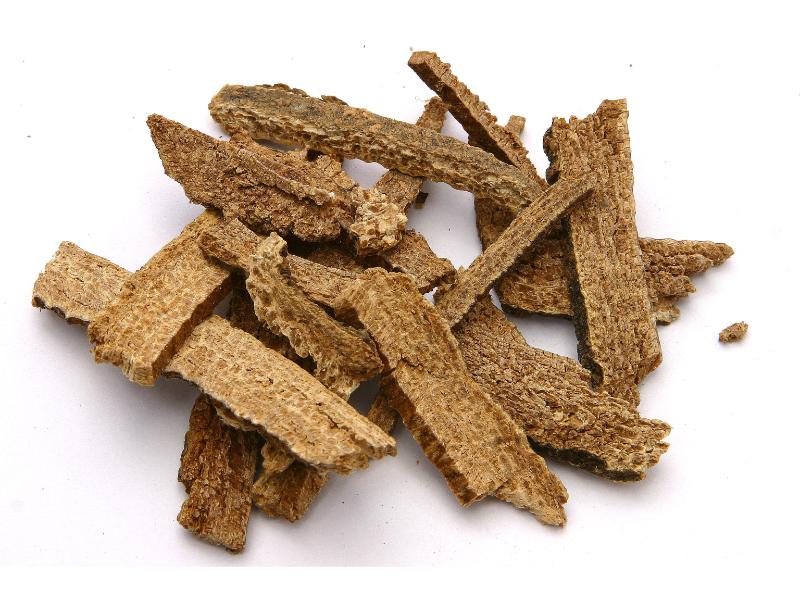Search in medicinals
Ailanthi Cortex
Ailanthus bark
椿皮 〔椿皮〕 chūn pí

Alternate English names: tree-of-heaven root bark tree-of-the-gods bark
Alternate Chinese names: 椿樗白皮 chūn shū bái pí
Kingdom: Plant
Origin in PRC Pharmacopoeia: Ailanthus altissima (Mill.) Swingle. (PRC Pharmacopoeia)
Origin in unofficial sources: Ailanthus altissima (Mill.) Swingle
Use: Medicinal
Category: Astringing agents / Intestine-astringing diarrhea-checking agents
Properties: Bitter, astringent; cold.
Channel entry: Large intestine and liver channels.
Actions and indications:
- Clears heat and dries dampness; checks vaginal discharge by astriction: Red and white vaginal discharge.
- Checks diarrhea by astriction: Damp-heat diarrhea or damp-heat dysentery; enduring diarrhea or dysentery.
- Stanches bleeding: Flooding and spotting; profuse menstruation; bloody stool; bleeding hemorrhoids.
- Additional uses: Chūn pí can kill worms. It is taken orally to treat roundworm with abdominal pain and is used externally as a wash to treat itchy scab and lichen.
Dosage and method: Oral: 6–9 g in decoctions.
Warnings: Use with care in spleen-stomach vacuity cold.
Notes: In Chinese texts, chūn pí is often referred to 椿樗白皮 chūn shū bái pí. Until recently, 椿 chūn and 樗 shū were believed to be different trees, Toona sinensis (A. Juss.) Roem. [= Cedrela sinensis Juss.] and Ailanthus altissima (Mill.) Swingle respectively. Now, only the Ailanthus is recognized by the Chinese Pharmacopoeia.
Back to search result Previous Next